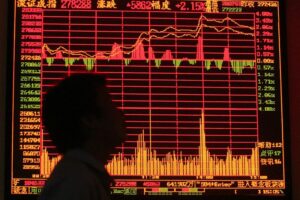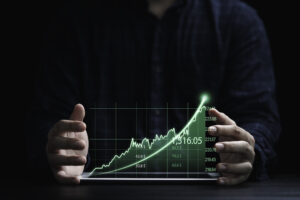NEW YORK — It’s not always easy to ask for help.
One of my best friends in New York is self-quarantining. She is smart, extremely well-read and makes me laugh. We read long-form articles together and, afterwards, we discuss them over tea. We don’t always agree, which we like, but we do agree most of the time, and we’re OK with that too.
My friend remembers the AIDS crisis of the 1980s and 1990s, and witnessed people get up from a park bench if they thought a sick person sat next to them. She did not even get around to telling me about the many polio epidemics. Perspective is good: THIS IS NOT THE FIRST PANDEMIC (1).
We take tap-dancing classes together (her idea). At least, we did until the social-distancing policies prescribed by public-health officials came into effect. On Monday, we each vowed to practice 15 dance steps. That’s more “dig, brush, toe, heel, paddle and roll, paradiddle!” for me.
It’s good to be cautious, but it makes sense to be careful and take your time.
She listens carefully, tells me exactly how she feels, and remains open to changing her mind. I learn from her. Before tap-dancing class, she asks me, “So, Quentin, what color is your tutu today?” I usually describe the most ridiculous-sounding tutu. “Pink,” I say, “with yellow ruffles.”
My friend is 95, and she is now blind. Mostly, I feel grateful that we are both here at the same time, and that our paths crossed. She is one of my favorite people on the planet. She grew up in an Irish community in Massachusetts. I grew up in Dublin. She calls me “Lace-Curtain Irish.”
She needed a couple of weeks’ worth of groceries. That is how I found myself with another Irish friend — who moved to the U.S. 30 years before I did — in Fairway Market on Broadway and 74th Street on Monday afternoon, with a shopping list in one hand and a grocery cart in the other.
We’d been asked to help buy our friend groceries, so we joined forces. I didn’t like him usurping my place as Sir Edmund Hillary on this potentially hazardous expedition. (Nor did I want to be Francis Crozier to his Sir John Franklin.) But it’s a lot for one person to carry the load. We made a good team.
I wore a balaclava I bought for a New Year’s Eve midnight run in Central Park.
“If we’re gonna get coronavirus, this is the place we’re gonna get it,” I said, surveying the aisles. He looked at me like I was about to rob a store, not shop in one. “What’s wrong?” I said. I was wearing a balaclava I bought for a New Year’s Eve midnight run in Central Park. He tried to muffle a laugh.
“Would you risk your life for a jar of marmalade?” I asked. He turned his head, as if to roll his eyes up to heaven, but then appeared to think better of it mid-roll. I presumed he was about to say, “You’re completely overreacting.” But he’s a gem, so he did a diplomatic 360-degree head roll, instead.
As for wearing a D.I.Y. mask, I could be wrong, I could be right, as Johnny Rotten sang. There are conflicting messages on whether a face mask other than the scarcely available medical-grade N95 helps. With so many people milling about, I decided to err on the side of caution.
Research has concluded that masks have helped reduce contagion by reducing droplets being sprayed into the air during flu season; and infectious disease specialist Anthony Fauci has said the White House Coronavirus Task force is considering giving the public the green light to wear them.
N95 medical-grade masks help filter viruses larger than 0.1 micrometers.
N95 masks filter viruses larger than 0.1 micrometers (A micrometer, um, is one millionth of a meter.) Coronavirus is 0.125 um. Still, I would not wear an N95. They’re needed elsewhere. And if I am asymptomatic? If I can avoid passing on one droplet while reaching for the chicken giblets, I will.
Proponents of face masks also point to countries in East and Southeast Asia, including South Korea and Taiwan, which appear to have slowed the spread of the coronavirus more effectively than the U.S., Spain and Italy. But they also have other safety measures, including early testing, in place.
I wore gloves because studies have found that shopping carts are traditionally covered in all kinds of germs, just like subway poles and turnstiles, or anything else that people touch on a regular basis. I constantly lose my gloves, alas. But I have adopted a wartime thrift. I wear odd pairs with pride.
I did not bring alcohol wipes. Next time, I will at least bring Clorox CLX, -0.70% wipes in a Ziploc bag. I tell myself every 15 minutes to wash my hands as soon as I get home both before and after I put the groceries away. “When you get home, Quentin, WASH YOUR HANDS (2).”
Shopping carts are covered in all kinds of germs, just like subway poles.
Here’s the other reason I wore a ridiculous balaclava: It’s not comfortable, it reminds me that we’re dealing with a serious health emergency, it covers almost my entire head, and — here’s the science bit — I am constantly reminded: DO NOT TOUCH YOUR FACE (3).
If you take anything away from this, rather than becoming embroiled in a heated debate on face masks, take that. Coronavirus can survive longer on a solid surface than on a pair of gloves, but it can live for a time on different surfaces, so I try to be aware that it could be on my gloves, too.
Growing up in Ireland in the 1980s during the Troubles, and living in London during the 1990s, swanning around in a balaclava would have been a risky proposition, especially with an Irish accent. But during the 2020 coronavirus pandemic with my mid-Atlantic twang, I think I’ll be OK.
As an editor, I play devil’s advocate with my writers, push back and ask questions. It helps to be a little paranoid. I’m putting a life skill to good use. The coronavirus pandemic is a time when germaphobes (check), quirky paranoid types (check) and workaholics (check) come into their own.
I took my time, and I stayed six feet away from others whenever possible.
But here’s the other thing I learned during My Day at the Supermarket: Shopping can be stressful under these conditions. It’s good to be a cautious — and a smart — shopper. I usually want to get in and out in double-quick time, but I decided to be careful and take my time.
What’s more, I enjoyed it. Everything I could have done to minimize my chances of picking up COVID-19, I did. I stayed six feet away from others, whenever possible, including my shopping partner. We did not go at rush hour. I talked to staff and other customers.
Everyone is freaked out. Friendly banter puts me and, I hope, others at ease. A nice woman recommended the London Broil. I read peer-reviewed studies — not Facebook FB, +0.51% posts. I choose caremongering over scaremongering because FEAR IS NOT YOUR FRIEND (4).
There is no evidence linking coronavirus transmission with food or food packaging. Juan Dumois, a pediatric infectious-diseases physician at Johns Hopkins All Children’s Hospital in St. Petersburg, Fla., suggests that viruses would survive better on “artificial fibers” such as plastic or polyester.
Viruses survive better on artificial fibers such as plastic, vinyl and polyester.
This too might help: Sarah Fortune, a professor and chair of the department of immunology and infectious diseases at the Harvard T. H. Chan School of Public Health, said that while health-care workers might have to worry about their clothes, we should not.
But here’s the deal: If you want to change clothes or wear a mask, do it. TRUST YOUR GUT (5). As my self-quarantining friend told me the other day on the phone, “Quentin, I’m 95! Do you think I’m scared of coronavirus?” But that doesn’t mean she’s standing in line at the supermarket, either.
If you are concerned about going to the grocery store, imagine what it’s like for those who work there. I told every staff member I spoke to at Fairway, “Thank you for working today.” They need to hear that. Customers must be frazzled, and a frazzled customer is often not a gentle or happy customer.
I also got something I couldn’t buy at any store or pharmacy. Getting out of the house for a couple of hours was a great tonic. I didn’t see Yoko Ono rummaging through the vegetables at Fairway — I did see her there once, and I left her to it — but I did meet another friend outside, from six feet away.
If you’re nervous about shopping, imagine what it’s like for the staff.
We had two weeks’ worth, maybe more, of groceries — including bottles, cans, six-packs of kitchen roll, liters of milk, jars of this, that and the other — and they were heavy. I walked one block, and we had a few more to go. I spotted an abandoned cart on the street corner. “We’ll return it,” I said. “Later!”
I quickly piled the groceries into the cart and pushed it across four car lanes on Broadway. We’re in the middle of a national emergency, after all, and if the cops stopped me, I’d simply tell them the truth. Thank you, NYPD, first responders and health professionals, and thank you, Fairway Market.
As I headed down Amsterdam with the speed of a clanking, yet nutritious, bullet, a man ran out of a jewelry store in pursuit of another man. “People are dying, and you try to steal something from my store? You mother******!” Ah, yes. There are always folks with bigger problems than mine.
It was a good day in Manhattan. To quote that opening line from the postwar film noir, “The Naked City” (1948), “There are eight million stories in the naked city. This has been one of them.” My 95-year-old friend would have been 23 when that film was released. She too has more stories to tell.
This essay is part of a MarketWatch series, ‘Dispatches from a pandemic.’
 MarketWatch photo illustration/iStockphoto
MarketWatch photo illustration/iStockphoto div > iframe { width: 100% !important; min-width: 300px; max-width: 800px; } ]]>











